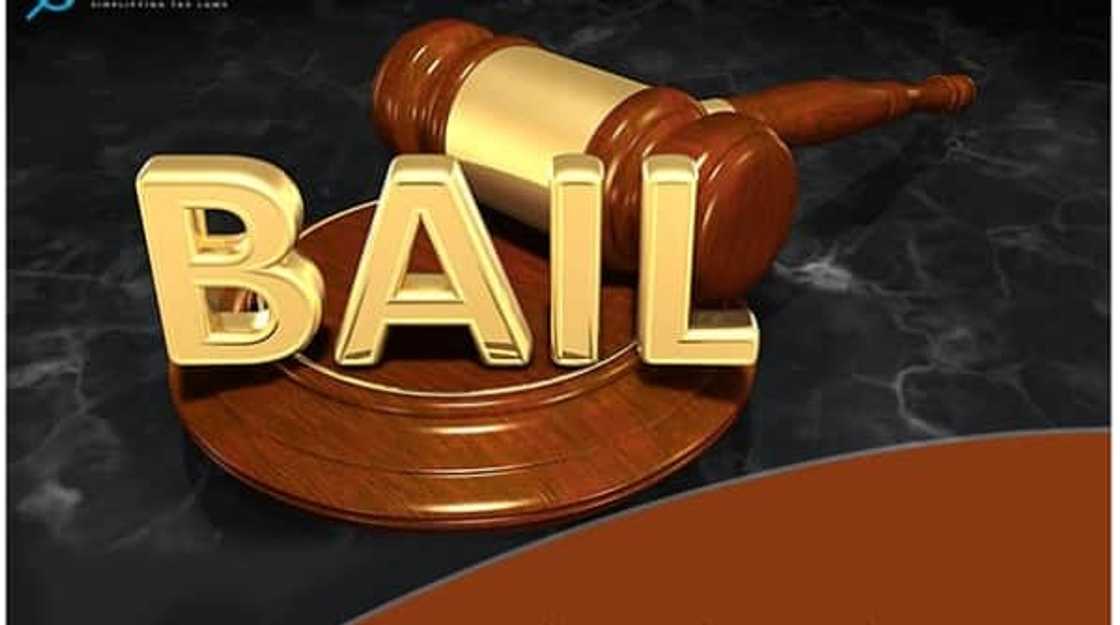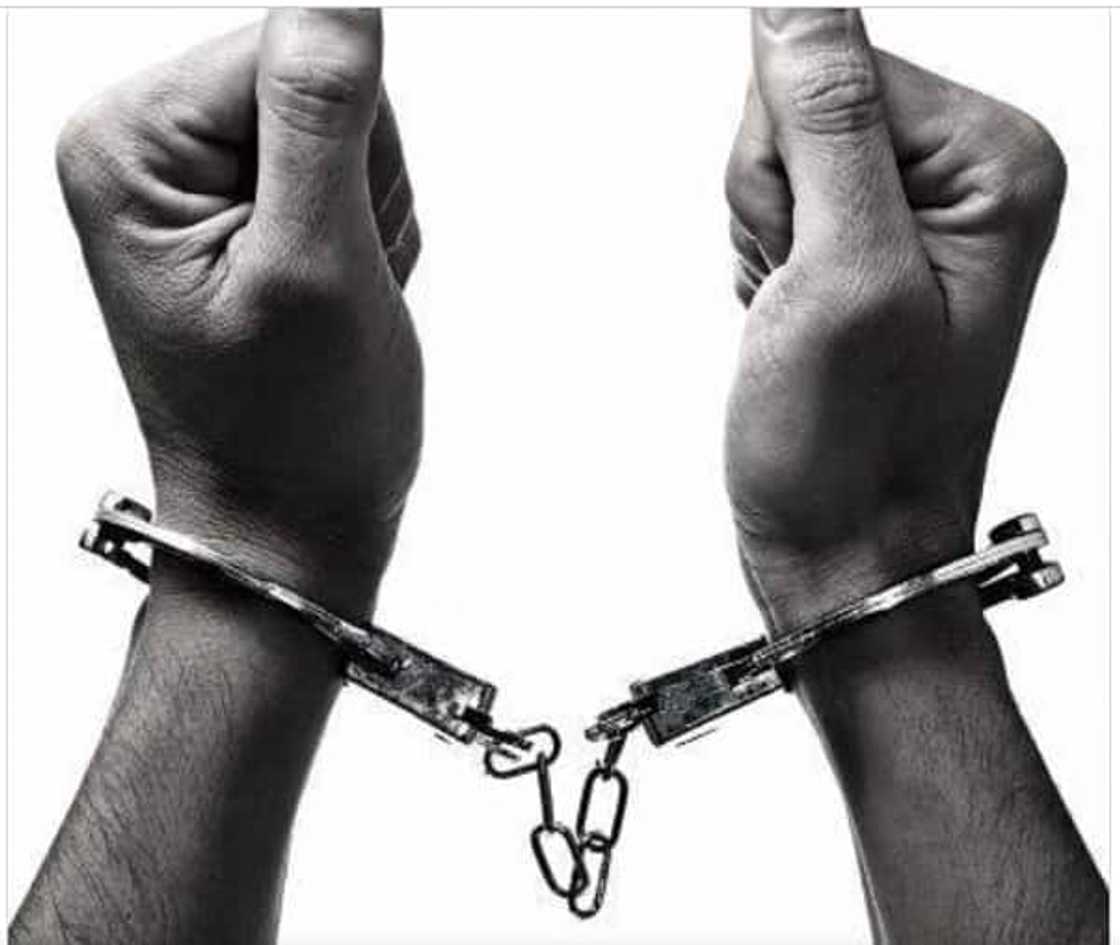Bail application procedure, cases, form, sample, new facts
An understanding of the criminal procedure is highly essential, especially when dealing with lawsuits. It is by mastering all the involved processes that South Africans can access and benefit from our robust criminal justice system. Among the most popular and outspoken legal procedures is the bail application. Even so, it is unfortunate that many South Africans do not know much about bail and how it can help them in pursuing justice.

Source: Instagram
It is until one finds themselves on the wrong side of the law that basic legal concepts become handy. For this reason, those that have not previously locked arms with the law often miss details concerning bail application. While the procedure is relatively straightforward, first-timers often experience difficulties finishing their applications. You can make sure to complete your bail application successfully by following these simple steps.
What is bail?
Bail is an amount of money paid as well as a set of pre-trial restrictions for a temporal release of the accused in a criminal court. What is the point of bail? It is granted on the interests of justice, in the hope that the accused will present themselves for their trial. These pre-trial restrictions for a temporal release of the accused principally serve to minimize the impact of freedom before the accused is proven guilty or convicted.
READ ALSO: Know your rights: procedure for arresting a person in South Africa
Where can a person apply for bail?
There are different types of bail in South Africa; therefore, the accused has three options of obtaining bail forms in South Africa. An accused can choose between the following options of pre-trial restrictions for a temporal release:
- Police bail - Application is done at the police station within 48 hours of being arrested and prior to the first court appearance. Only applicable for minor offense criminals, e.g theft below R2500, possession of particular drugs below certain grams, and common assault.
- Prosecutor bail - Can be applied at the police post before the first court appearance but made to a prosecutor authorized by the Director of Public Prosecutions who is allowed to grant pre-trial restrictions for a temporal release of the accused for more serious offenses.
- Court bail- It is mandatory for bail application in court to be done during the initial court appearance. It can also be done during the court proceedings, and it is granted at any moment before the conviction. The court will stipulate the terms and conditions that have to be adhered to when one is released.
A legal representative or the accused can apply for bail at a police station ahead of their first court appearance. Alternatively, one can apply for this surety from the courtrooms.
Bail application procedure

Source: Instagram
How do you apply for bail? You can apply for a bail using the following procedure if you are accused and do not want to stay in the cell while awaiting your trial. Before making the applications, the accused should understand their rights, including legal representation and speedy trial, after receiving information on the cause of their arrest.
- After being locked in a police station following an arrest, the officers will grant the accused a chance to call and inform their loved ones about the arrest.
- The accused should contact the criminal defense bail attorney or someone who can help facilitate contact with an attorney.
- The criminal defense attorney will respond and initiate the process of applying for the restricted release upon consultation with the accused and their loved ones.
- The criminal defense attorney should take the lead in negotiating the amount that one should pay before being released temporarily.
What should a person do if bail is granted at the police station?
The applicant should pay the specified amount (cash bail) through the police upon the acceptance of their restricted release. The settlement will have the applicant released from the police custody until the day of their hearing. The accused should receive a receipt as an indication and evidence of the deposited sum.
What happens at the hearing of the application for bail in court?
The accused can apply for restricted temporal release through the court. In such a case, the court should respond within seven days with no further postponement. The accused should provide all the necessary information required before the issuance of bail. The court should give detailed feedback on the acceptance or denial of the bail.
How long will a bail hearing take? The hearing varies considerably depending on the parties involved and the number of witnesses called upon to testify.
What should a person do if bail is granted at court?
The court can only issue bail ahead of conviction as long as the interests of justice are satisfied. The court may grant a conditional bail requiring the accused to report regularly at designated police stations. The accused should pay all due charges to the court clerk before the issuance of their restricted temporal release is finalized. In some instances, the accused can be released on warning.
What is required during a bail hearing?
To prove that the accused is linked to the offense in question is vital in the issuance of a temporal release. The details gathered from the accused are also crucial in this process.

Source: Instagram
Criminal Procedure Act schedule of offences
There are eight schedules of the Criminal Procedure Act in South Africa. Each of these schedules has a unique application and temporal release amounts in South Africa.
- Schedule 1 offences: These include “Sections 40 and 42.” Schedule 1 criminal offences in South Africa include public offenses, treason, murders, and sexual offenses, which are also reiterated in other sections.
- Schedule 2 offences: Includes Part I (Section 35) and Part II (Sections 59, 72).
- Schedule 5 offences: Includes Sections 58 and 60 (11) and (11A) and Schedule 6. Schedule 5 bail application in South Africa covers a broad spectrum of cases. Schedule 5 bail application case laws encompass those that govern against rape cases and bodily harm offenses.
- Schedule 6 offences: These crimes include Sections 50 (6), 58 and 60 (11), and (11A). Schedule 6 bail application includes human trafficking and robbery, among others.
- Schedule 7 offences: Any offence relating to extortion or fraud will have a fee not exceeding R20,000.
Scheduled offences in South Africa vary considerably and overlap across the eight levels. However, each level has its unique description and payable fee when applying for temporal release.
Is the bail money refundable?
Is cash bail refundable? It is noteworthy that money paid before temporal release is refundable as long as the accused shows up on the day of the case. However, the deposited amount will not be refundable under different circumstances that violate the bail conditions. Some of these conditions include failure to show up for the trial and the interference with witnesses.
Bail application template South Africa
How do you write a successful bail application? Search online for the various bail application templates and an example of the bail application affidavit in South Africa to succeed in securing the restricted temporal release. The images will give you a clear picture of how to draft yours.
READ ALSO: How to obtain a Police Clearance for South Africa faster
The bail application process simply calls for an adequate understanding of the legal procedures in South Africa. After obtaining, filling, and submitting the form, you should receive an update on the acceptance or denial within seven days. All the best!
READ ALSO:
- How to do a criminal record check online in South Africa
- Free sworn affidavit template
- How to get free legal advice South Africa 2020
Source: Briefly News







